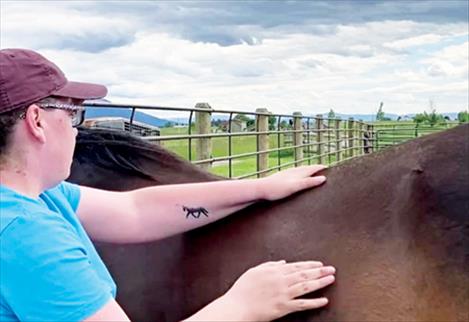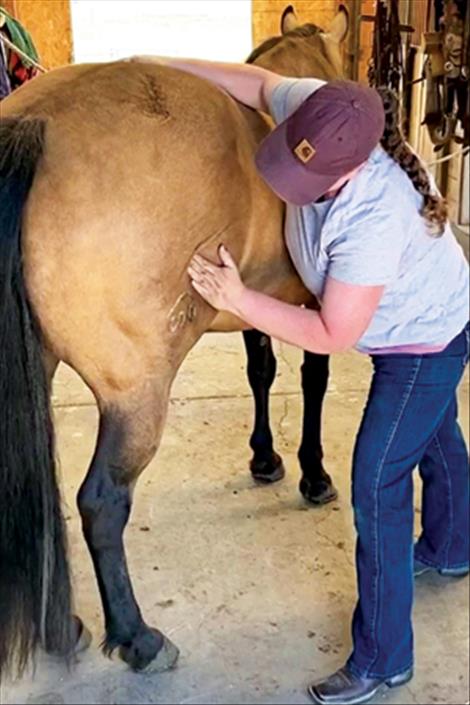Equine massage therapy offered in Mission Valley
Hey savvy news reader! Thanks for choosing local.
You are now reading
1 of 3 free articles.
POLSON — Among other farm-related talents, horses have the uncanny ability to jump fences, breeze around barrels and run-down cattle.
All these activities require healthy muscles, tendons, ligaments, and joints performing at their optimum potential.
Based on human massage techniques, a therapeutic equine massage treatment administered by a certified equine massage therapist may create long-term benefits for your horse by enhancing the horse’s overall health and wellbeing when body pain or muscle soreness hinders performance.
Many of the benefits that horses receive from massage therapy – pain relief, relaxation, increased joint mobility and flexibility – are similar to the benefits that humans receive from hands-on treatments.
“Often times we think of massage as relaxing, and a luxury, but it has multiple benefits to all aspects of a horse’s wellbeing,” explained Krystal Zolman, a Mission Valley-based certified equine massage therapist and owner of Zolman Equine Bodyworks.
According to Zolman, “pain relief is the most common reason horse owners seek out an equine massage.”
Muscle strain and soreness stem from overworking certain muscle groups, like the muscles of the back or hindquarters. Although muscle soreness is only a mild injury, the signs are often subtle and hard to spot, while the discomfort and pain can easily limit your horse’s overall performance.
Aching muscles are common in horses who need to work harder with the hind legs and over the back to maintain collection. Heavy muscling and restrictive side reins also predispose horses to muscle soreness.
By eliminating sore and tight muscles, regular massage therapy sessions remove restrictions which would hinder the recovery period. Unrestricted muscles are more easily reached by nutrients which allows them to more easily grow and adapt to their workload.
“Horses are extremely emotional animals and can feel stress, depression, and anxiety in a similar way to humans,” said Zolman.
A massage treatment may help to alleviate these issues. During an equine massage, blood pressure is reduced, and the breathing rate is slowed, which helps the horse to relax. The heat generated during a massage can also help to encourage a general feeling of calm and wellbeing which will ultimately improve the overall relaxation of your horse.
Many horses spend the majority of their day inside a stable or paddock and only get turned out once a day for an hour or two.
It is imperative for horses to maintain range of motion, otherwise other parts of their body will compensate and take up the extra workload, resulting in significant muscle fatigue, inflammation, and reduced flexibility.
A massage improves flexibility through stretching techniques, designed to ensure correct alignment and rehydration of muscle fibers. Hydrated muscles have more elasticity, and a greater ability to stretch, thus improving flexibility.
Older arthritic horses also become more susceptible to pain and stiffness in their joints as their mobility slowly declines.
A targeted massage of the joints and surrounding muscles can be a good way to alleviate joint pain, allowing for more free flowing movement.

















